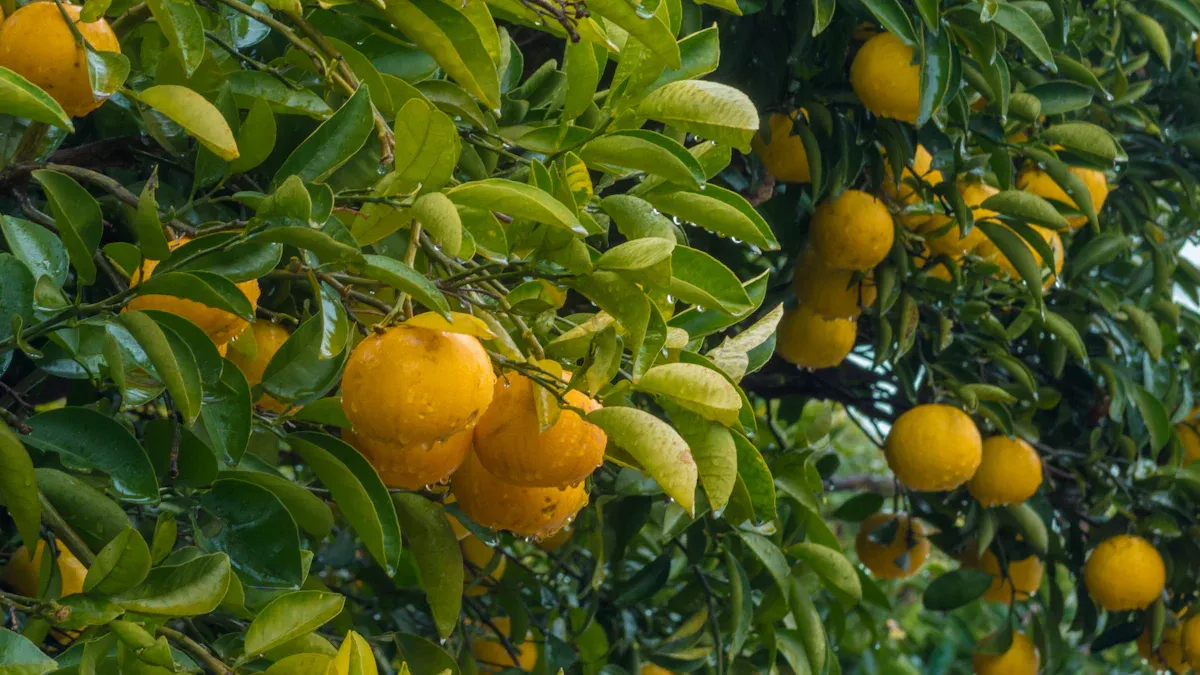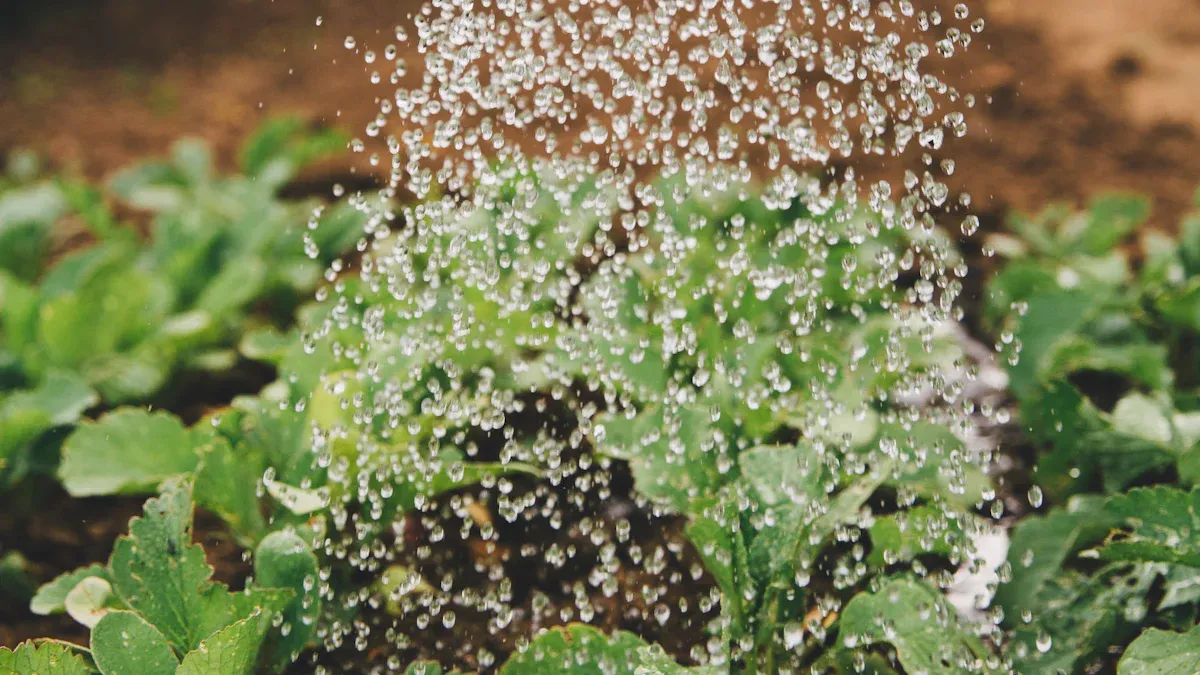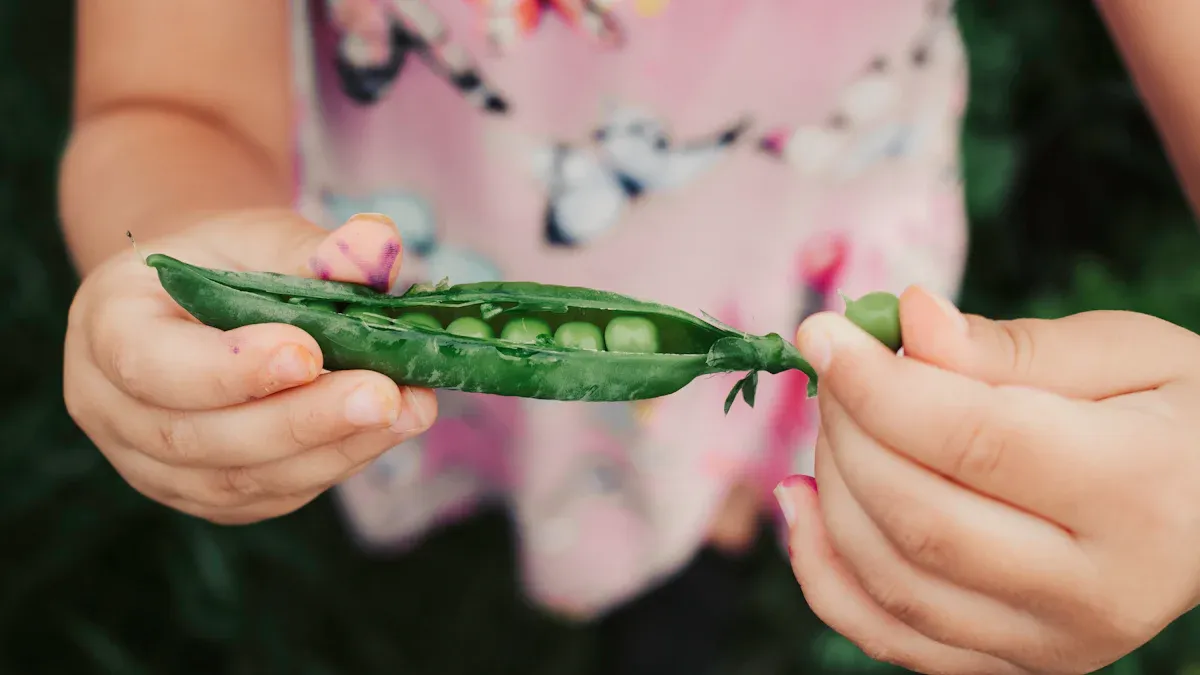
If you’re a citrus lover, you know how rewarding it is to grow your own fruit. But what happens when pesky scales invade your plants? These tiny pests can wreak havoc on your citrus trees, making them unhealthy and unproductive. Don’t worry! You can take action to restore your plants to their former glory. Let’s dive into how you can start getting rid of scales effectively and ensure your citrus thrives.
Key Takeaways
Identify scale infestations by looking for signs like yellowing leaves, sooty mold, and sticky residue on your citrus plants.
Choose the right removal method for scales, whether it’s chemical insecticides, organic remedies, or mechanical techniques like manual removal.
Regularly monitor your citrus plants for early signs of scales. Weekly checks during growth periods help catch infestations before they spread.
Maintain the health of your citrus plants through proper fertilization, pruning, and mulching to make them less susceptible to pests.
Encourage natural predators like ladybugs to help control scale populations and promote a healthy ecosystem in your garden.
Identifying Scales on Citrus Plants

Visual Signs
When you suspect scales on your citrus plants, look for some telltale signs. These pests can be sneaky, but you can spot them with a keen eye. Here are some common visual symptoms of scale infestations:
Sooty Mold: This black, powdery substance often covers leaves, fruit, and branches. It grows on honeydew, a sticky residue that scales produce while feeding.
Yellowing Leaves: You might notice leaves turning yellow or developing mottled patterns. This change often indicates that the plant is struggling due to scale damage.
Sticky Residue: If you see a shiny, sticky film on your plants, that’s honeydew. It’s a clear sign that scale insects are feeding on your citrus.
Scale Bodies: Look closely at the stems and leaves. You may find small, flattened bumps or nodules. These are the scales themselves, and they can vary in color from brown to white.
Ant Activity: If you see ants crawling around your plants, they might be farming the scales for honeydew. Ants protect scales from predators, so their presence can indicate an infestation.
Poor Fruit Development: Watch for misshapen or discolored fruit. Scales can hinder the plant’s ability to produce healthy fruit, leading to premature dropping or blemishes.
Remember, the presence of sooty mold suggests that there’s been a population of sucking insects, like scales, in the area.
Types of Scales
Understanding the types of scales that affect citrus plants can help you tackle the problem effectively. Here are the main types you should be aware of:
Scale Insect Type | Scientific Name | Characteristics |
|---|---|---|
Soft Brown Scale | Coccus hesperidum L. | Flat and oval, light brown to yellowish, 2.5 to 4 mm long; secretes honeydew, can kill young citrus trees. |
Florida Wax Scale | Ceroplastes floridensis Comstock | Covered with soft wax, 2 to 4 mm long, white to pinkish; secretes honeydew, immature stages found on leaves and twigs. |
Other Species | Various | More than 40 species present on Florida citrus, but these are the most commonly encountered. |
Scales can be classified into two main categories: armored scales and soft scales.
Feature | Armored Scales | Soft Scales |
|---|---|---|
Size | 1/16 to 1/8 inch long | 1/8 to 1/4 inch long |
Shape | Circular to elongate | Round to oval, dome-shaped |
Covering | Hard, waxy covering | Waxy scale covering adheres tightly |
Legs and Antennae | Lost during first molt | Greatly reduced but not completely lost |
Feeding Damage | Causes yellow/brown halos, no honeydew | Causes yellowed leaves, produces honeydew |
Location on Plant | Lower leaf surfaces and stems | Undersides of leaves and stems |
By recognizing these signs and understanding the types of scales, you can take the first steps toward protecting your citrus plants from these pests.
Impact on Citrus Plant Health
Growth Effects
Scales can significantly hinder the growth of your citrus plants. When these pests feed on the sap, they weaken the plant, leading to several issues. You might notice yellowing leaves, wilting, or even stunted growth. The longer scales remain unchecked, the more damage they cause. In commercial citrus orchards, severe infestations can lead to reduced fruit yield and quality. For instance, red scale insects create yellow halos around feeding points, resulting in deformed and dropped fruits. Similarly, cottony cushion scales produce large amounts of honeydew, causing fruit drop and defoliation.
Type of Scale Insect | Symptoms Affecting Yield and Quality |
|---|---|
Red Scale | Yellow halos around feeding points, honeydew, wilting leaves, deformed and dropped fruits. |
Cottony Cushion Scale | Large quantities of honeydew, fruit drop, wilting leaves, defoliation, and dieback of twigs. |
San José Scale | Red spots on fruit, yellowing leaves, defoliation, and loss of tree vigor. |
Disease Risks
Scales not only affect growth but also pose serious health risks to your citrus plants. These pests can facilitate the spread of harmful pathogens. For example, the Asian citrus psyllid is a known vector for the bacterial pathogen Candidatus Liberibacter asiaticus, which causes Huanglongbing (HLB) disease. This disease can devastate entire groves, leading to significant economic losses.
Infestations in the citrus industry result in significant economic losses.
Global cost estimates due to these infestations reach billions of dollars annually.
Moreover, the presence of scale insects can weaken your plants, making them more susceptible to diseases. When your citrus plants are stressed, they struggle to fend off infections, leading to a vicious cycle of decline.
By keeping an eye on scale populations and addressing infestations promptly, you can help protect your citrus plants from these detrimental effects.
Getting Rid of Scales: Removal Methods

When it comes to getting rid of scales on your citrus plants, you have several effective options. You can choose from chemical solutions, organic remedies, or mechanical techniques. Each method has its benefits, so let’s explore them in detail.
Chemical Solutions
If you prefer a quick fix, chemical insecticides can be effective against scale insects. Here are some of the most effective options:
Acetamiprid (Assail)
Thiamethoxam (Actara)
Flupyradifurone (Sivanto)
Tolfenpyrad (Bexar)
These insecticides are particularly noted for their effectiveness against citricola scale on citrus plants. However, you should always take safety precautions when applying these treatments. Here’s a handy table to guide you:
Safety Precaution | Description |
|---|---|
Selective Insecticides | Choose insecticides that target scales while minimizing harm to beneficial insects. |
Follow Label Instructions | Always adhere to all label instructions and local regulations. |
Timing Applications | Time applications to coincide with vulnerable life stages of the scales. |
Rotate Modes of Action | Rotate different modes of action to prevent resistance development. |
Prioritize Organic Methods | Some chemical treatments can be poisonous; prioritize safer, organic methods when possible. |
Using chemical solutions can be effective, but remember to monitor your plants closely after treatment. This way, you can catch any potential side effects early.
Organic Remedies
If you’re leaning towards a more sustainable approach, organic remedies can help you manage scale infestations without harsh chemicals. Here are some effective organic options:
Horticultural oils (like neem oil and mineral oil)
Insecticidal soaps
Diatomaceous earth
Botanical insecticides (such as pyrethrins)
You can also refer to this table for specific products:
Active Ingredient | Pests Managed | Product Names |
|---|---|---|
Horticultural Oil | scale, mites, aphids | Bonide All Seasons Horticultural and Dormant Spray Oil, Monterey Horticultural Oil, Safer Brand Horticultural and Dormant Spray Oil, Southern Ag ParaFine Horticultural Oil, Summit Year-Round Spray Oil |
Insecticidal Soap | mites, whiteflies, aphids | Bonide Insecticidal Soap, Espoma Organic Insect Soap, Garden Safe Insecticidal Soap, Miracle Gro Nature’s Care Insecticidal Soap, Natria Insecticidal Soap, Natural Guard Insecticidal Soap, Safer Brand Insect Killing Soap, Southern Ag Insecticidal Soap, Whitney Farms Insecticidal Soap |
These organic pest control methods are not only effective but also promote biodiversity in your garden. They can help you maintain a healthy ecosystem while keeping your citrus plants safe from scales.
Mechanical Techniques
Sometimes, a little elbow grease goes a long way! Mechanical techniques can be a straightforward way to manage scale infestations. Here are some methods you can try:
Manual removal: Use a gentle blast from a hose to dislodge scale insects. Afterward, dispose of them in soapy water to prevent them from returning.
Pruning: If you notice heavily infested branches or stems, cut them out and discard them properly. This helps prevent the scales from spreading to other parts of your plant.
By combining these methods, you can create a comprehensive strategy for getting rid of scales on your citrus plants. Whether you choose chemical, organic, or mechanical techniques, the key is to stay vigilant and act quickly when you spot an infestation.
Monitoring and Preventing Scales
Regular Maintenance
To keep your citrus plants healthy and free from scales, regular maintenance is key. Here are some practices you should consider:
Biological Control: Encourage natural predators like ladybugs and lacewings. These insects help keep scale populations in check.
Cultural Control: Implement practices such as proper irrigation, nutrient management, and regular pruning. These actions strengthen your plants and make them less susceptible to pests.
Physical Control: Prune infested branches and use high-pressure water sprays to dislodge scales from your plants.
Organic Sprays and Treatments: Apply horticultural oils and insecticidal soaps when necessary. These treatments can effectively manage scale infestations without harming beneficial insects.
Monitoring and Early Detection: Conduct visual inspections and use sticky traps to monitor for scale presence. Regular monitoring and assessment help you catch infestations early.
You should inspect your citrus trees weekly during flush periods, like spring and summer. At other times, you can check less frequently. This proactive approach ensures you can intervene promptly if you spot any pests.
Health Strategies
Maintaining the health of your citrus plants is crucial for preventing scale infestations. Here are some strategies to consider:
Fertilization: Young trees need specific nitrogen levels, while mature trees require 1.5 to 3 pounds of fertilizer annually. Apply it in several doses to keep your plants strong.
Pruning: For young trees, limited pruning is needed. Mature trees should be pruned to remove unhealthy branches and improve air circulation.
Mulching: A two-inch layer of mulch conserves water and improves soil conditions. Organic mulches can also provide slow-release nitrogen, which benefits your plants.
By focusing on these health strategies, you can create a sustainable environment for your citrus plants. This not only helps in managing scales but also promotes biodiversity in your garden.
In conclusion, keeping your citrus plants healthy and scale-free is essential for a fruitful harvest. Remember these key strategies:
Use biological control agents to manage scale populations effectively.
Monitor your plants regularly to catch infestations early.
Combine different control methods for the best results.
Research shows that targeted interventions can significantly reduce pest populations while enhancing sustainability. By staying proactive, you can protect your citrus trees and enjoy bountiful fruit for years to come! 🍊
FAQ
What are the best ways to prevent scales on citrus trees?
To prevent scales, regularly monitor your citrus trees for early signs of infestation. Encourage natural predators, maintain plant health through proper watering and fertilization, and apply organic treatments as needed.
How often should I check for pests on my citrus plants?
You should inspect your citrus plants weekly during active growth periods, like spring and summer. This regular monitoring of treatment effectiveness helps catch any pest issues early.
Can I use chemical solutions safely on my citrus trees?
Yes, but always follow label instructions carefully. Choose selective insecticides that target scales while minimizing harm to beneficial insects. Safety precautions are essential for effective pest management.
How do I know if my treatment is working?
Monitor your citrus trees closely after treatment. Look for a decrease in scale populations, improved leaf color, and overall plant health. Regular checks will help you assess the effectiveness of your chosen methods.
What should I do if scales return after treatment?
If scales return, reassess your treatment methods. Consider rotating insecticides or trying organic remedies. Ensure you maintain regular monitoring of treatment effectiveness to prevent future infestations.
